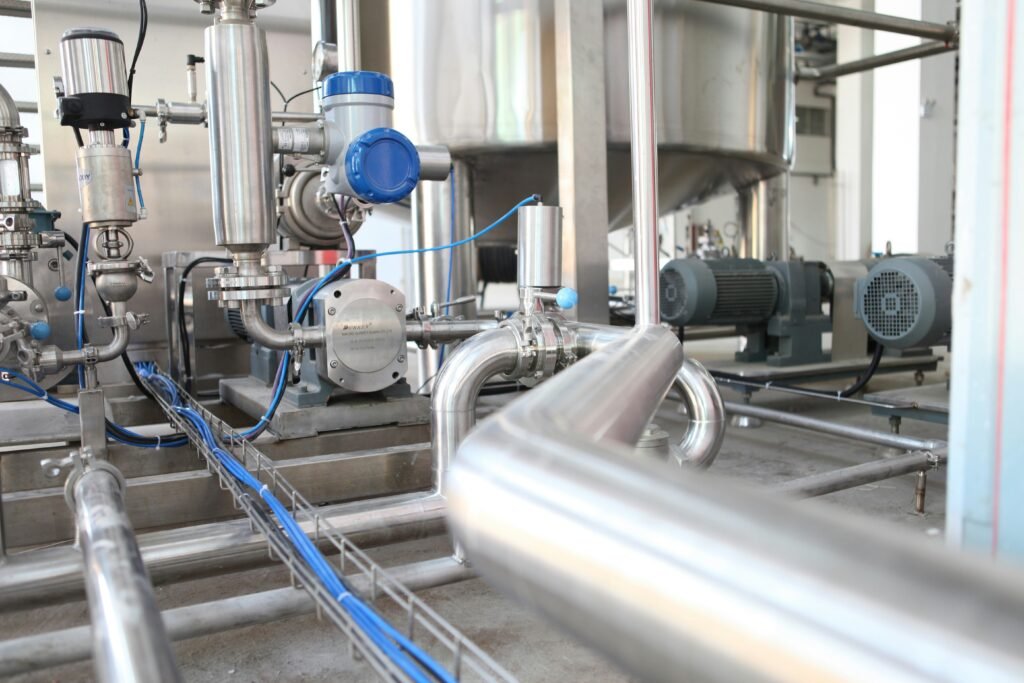Introduction
Filtration is a critical process in various industries, ensuring clean air, purified liquids, and contaminant-free environments. From water treatment and chemical processing to industrial air filtration, understanding the basics of filtration technology helps businesses select the right filtration system for their needs.
In this blog, we’ll explore what filtration is, its types, and how industries benefit from high-performance filtration solutions like bag filter housings, cartridge filters, HEPA filters, and dust collection systems.
1. What is Filtration?
Filtration is the process of separating solid particles from a fluid (liquid or gas) by passing it through a filter medium. This process ensures that only clean fluid passes through while removing dust, dirt, contaminants, and unwanted particles.
Commonly used in manufacturing, pharmaceuticals, food processing, oil & gas, and power plants, filtration improves product quality, operational efficiency, and environmental compliance.
2. Types of Filtration Systems
Industries use different types of filtration technologies based on their specific requirements. Here are the most commonly used filtration methods:
A. Liquid Filtration
🔹 Bag Filter Housing: Used for high-flow liquid filtration in chemical, food & beverage, and water treatment industries.
🔹 Cartridge Filter Housing: Ensures fine particulate removal in pharmaceuticals, oil purification, and industrial applications.
🔹 Coalescer Filters: Separate water and oil contaminants in fuel, gas, and compressed air filtration systems.
B. Air Filtration
🔹 HEPA Filters: Capture 99.97% of airborne contaminants, ideal for cleanrooms, hospitals, and HVAC systems.
🔹 Panel Filters (Pre, Fine, Riser): Used in HVAC systems and air handling units for staged filtration.
🔹 Pocket Filters: Provide high dust-holding capacity for air filtration in large commercial spaces.
🔹 Gas Turbine Air Intake Filters: Protect turbine engines from airborne pollutants in power plants.
C. Dust Collection Systems
🔹 Dust Collection Bags & Cartridges: Essential for metalworking, cement plants, and industrial manufacturing to control airborne dust and pollution.
3. Benefits of High-Quality Filtration Systems
Using advanced filtration systems like stainless steel bag filter housings, pleated cartridge filters, and HEPA filters provides multiple advantages, including:
✔ Improved Air & Liquid Quality – Ensures clean water, purified air, and contaminant-free production environments.
✔ Extended Equipment Life – Reduces wear and tear by preventing contaminants from entering machinery.
✔ Regulatory Compliance – Helps industries meet environmental and safety standards.
✔ Cost Savings – Reduces maintenance costs by preventing system clogs and breakdowns.
4. How to Choose the Right Filtration System?
Selecting the right filtration system depends on flow rate, particle size, industry standards, and application requirements. Here’s a quick guide:
🔹 For water treatment & chemicals: Use bag filter housings or cartridge filters.
🔹 For pharmaceutical & food industries: Opt for stainless steel cartridge filter housings for hygiene compliance.
🔹 For air purification: Choose HEPA filters, panel filters, or pocket filters based on airflow needs.
🔹 For heavy dust control: Install pleated dust collection bags or cartridges in manufacturing plants.
Conclusion
Filtration is a vital process across industries, ensuring clean, efficient, and safe operations. By choosing high-quality filtration solutions from Unimarshal Technologies Pvt. Ltd., businesses can enhance productivity, protect equipment, and comply with industry regulations.
📞 Looking for expert filtration solutions? Contact us today to find the best bag filter housings, cartridge filters, HEPA filters, and custom filtration systems for your industry!
FAQ’S
-
What is filtration and why is it important?
Filtration is the process of removing solid particles from liquids or gases using a filtration system. It is essential for clean water, purified air, and contaminant-free industrial processes, ensuring equipment protection, regulatory compliance, and enhanced efficiency.
-
What are the different types of filtration?
There are several types of filtration, including:
Liquid Filtration (Bag filter housing, cartridge filters, coalescer filters)
Air Filtration (HEPA filters, panel filters, pocket filters)
Dust Collection (Pleated dust collection bags, dust collection cartridges)
Gas Turbine Filtration (Air intake filters for turbines and compressors) -
How does a bag filter housing work?
A bag filter housing is designed for high-flow liquid filtration. Contaminated liquid passes through a filter bag, trapping dirt, debris, and particles, ensuring cleaner output. It is widely used in water treatment, chemical processing, and food & beverage industries.
-
What is a HEPA filter and where is it used?
A HEPA (High-Efficiency Particulate Air) filter captures 99.97% of airborne contaminants as small as 0.3 microns. It is commonly used in HVAC systems, hospitals, cleanrooms, and industrial air filtration to improve indoor air quality and remove dust, pollen, and allergens.
-
What is the role of gas turbine air intake filters?
Gas turbine air intake filters remove dust, dirt, and airborne particles from the air before it enters a gas turbine or compressor. This enhances turbine efficiency, extends lifespan, and reduces maintenance costs, making it crucial for power plants and oil & gas industries.


